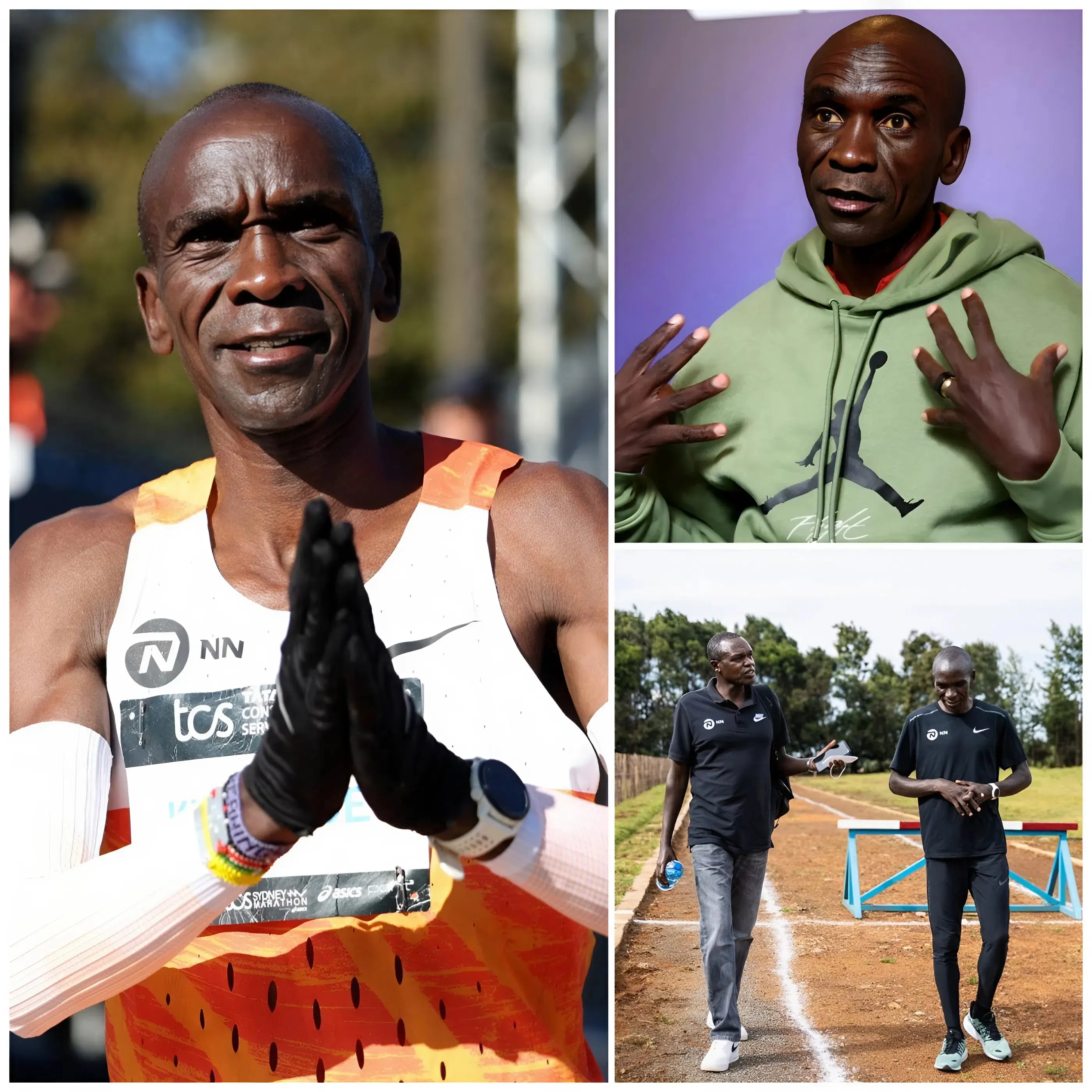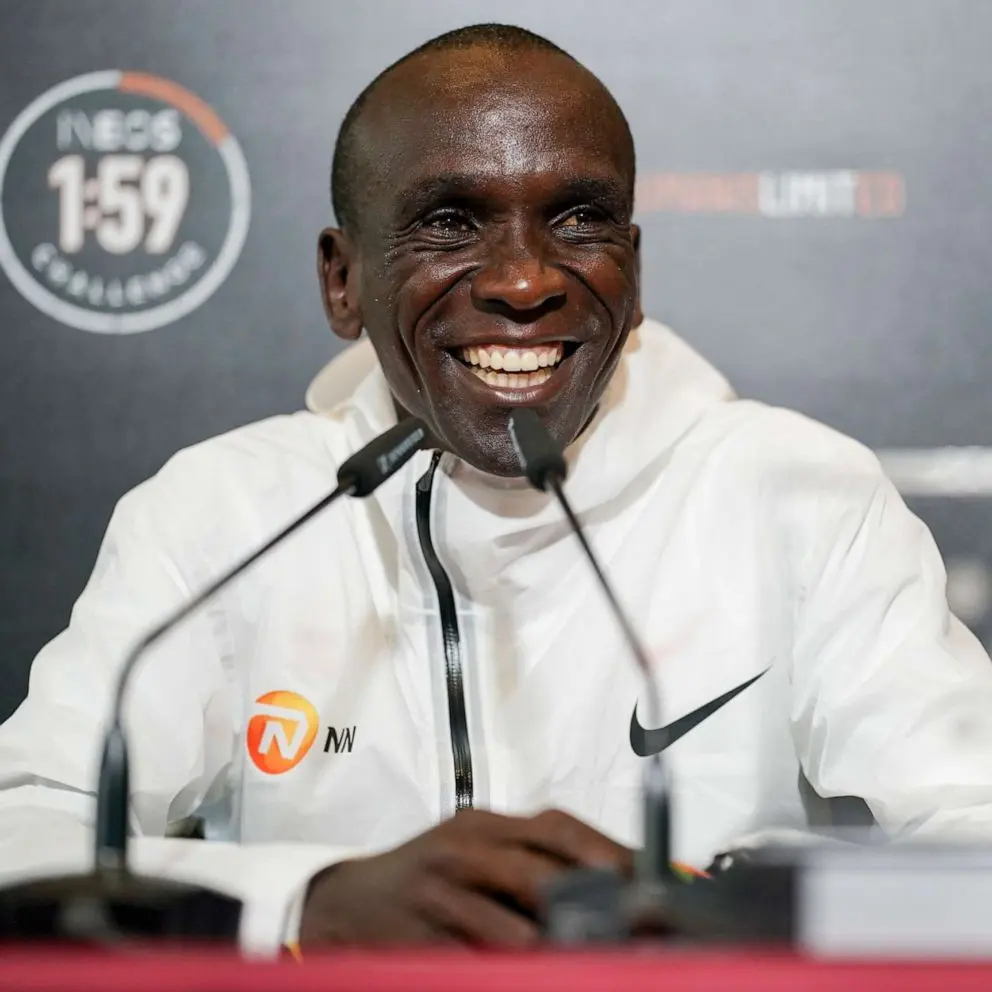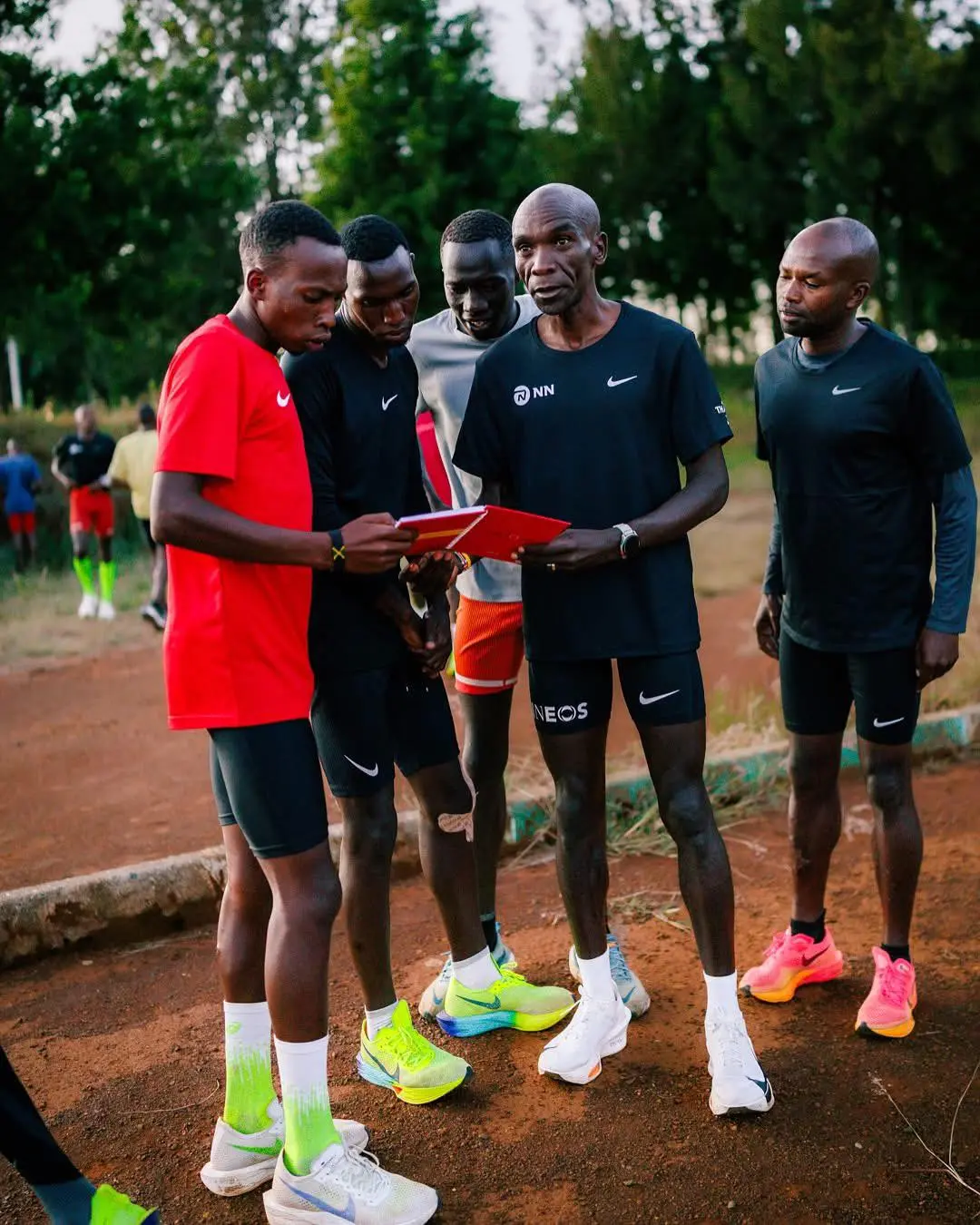Kipchoge’s Daring NYC Marathon Gamble: Can the Marathon King Redeem His Legacy at 40?

In the high-stakes world of elite marathon running, where every stride can etch a name into eternity or fade it into footnotes, Eliud Kipchoge has long been the undisputed sovereign. The Kenyan legend, with two Olympic golds and a sub-two-hour marathon to his credit, has redefined endurance, inspiring millions with his mantra of “no human is limited.” But as the calendar flips to October 2025, Kipchoge finds himself at a crossroads that could either crown his career or cap it in controversy. Fresh off a shocking ninth-place finish at the Sydney Marathon Championship in August—clocking 2:08:31, his slowest major outing in over a decade—the 40-year-old icon is doubling down on the 2025 New York City Marathon. This isn’t just another race; it’s a high-wire act that’s ignited debates across the global athletics community, questioning whether the king is chasing immortality or courting burnout.
The Sydney debacle hit like a thunderclap. Kipchoge, who had dominated the Abbott World Marathon Majors with 11 victories, arrived in Australia as the favorite to conquer the series’ newest jewel. The course, a punishing blend of coastal winds and urban inclines, was meant to be his triumphant addition to an already glittering resume. Instead, he faltered midway, legs heavy under the relentless sun, finishing nearly five minutes behind winner Tamirat Tola. Whispers turned to roars: Was age finally catching up? Critics, from pundits on ESPN to Kenyan running forums, piled on. “Kipchoge’s aura is cracking,” one analyst tweeted, echoing sentiments that his sub-2:02 personal best from Berlin 2022 was ancient history. The backlash stung deeper than the defeat; it tarnished the image of a man who’d shattered barriers, from Rio 2016’s Olympic glory to the INEOS 1:59 Challenge’s historic 2019 dash under two hours. Social media erupted with memes and hot takes, branding him a “has-been” in a sport increasingly dominated by fresher legs like Ethiopia’s young guns. Even in Kaptagat, his high-altitude training haven, locals murmured about the end of an era.

Yet, in true Kipchoge fashion, resilience roared back louder than the doubters. Just six weeks after Sydney, on September 10, New York Road Runners dropped the bombshell: Kipchoge was entering the TCS New York City Marathon field, making his long-awaited debut on the iconic five-borough gauntlet. This decision—the first time in his career he’d tackle three marathons in a single year—has split opinions like a Verrazzano Bridge divide. For purists, it’s reckless. Kipchoge’s body, honed over 23 marathons and 15 wins, has shown cracks: a DNF in Boston 2023, a labored eighth in Paris Olympics 2024. Racing NYC on November 2, with its bridges and hills taxing even the fittest, just 63 days after Sydney? “It’s a gamble that could end in injury or irrelevance,” warns LetsRun.com’s forum, where fans dissect his biomechanics like stock traders. Doctors and coaches chime in too—overtraining risks inflammation, stress fractures, the kind of setbacks that felled legends like Paula Radcliffe.
But peel back the skepticism, and this move gleams with audacious brilliance. Kipchoge isn’t just running; he’s scripting his magnum opus. NYC is the final piece in the Abbott World Marathon Majors puzzle—the only Major missing from his trophy case, alongside triumphs in Berlin, London, Chicago, Tokyo, and Boston. Crossing that finish line on Fifth Avenue, even if not first, nets him the elusive Six Star Medal, a platinum badge for completers of the originals. “It’s about legacy, not leaderboard,” Kipchoge told Reuters in a pre-race sit-down, his voice steady as the Kenyan Rift Valley earth. At 40, three days shy of 41 by race day, he’s defying the sport’s youth cult. Teammate Abdi Nageeye, the defending champ, calls it “poetic”—Kipchoge, the philosopher-runner, turning criticism into fuel. And the field? A murderers’ row: Evans Chebet, Benson Kipruto, Alexander Mutiso-Munyao. If Kipchoge summons his old sorcery, blending metronomic pacing with that unbreakable will, he could steal the show. Imagine it: the GOAT, graying at the temples, powering up Harlem Hill, crowd roaring “Eliud! Eliud!” as he claims a 16th major win.

The controversy swirls thicker online, where #KipchogeNYC trends alongside #MarathonComeback. Kenyan netizens rally with pride—”He’s our Wakanda forever,” one viral post quips—while international skeptics fret over doping shadows, especially after compatriot Ruth Chepngetich’s July suspension for a positive test. Kipchoge addressed it head-on: “It’s a shame to break rules in sport. Integrity is everything.” His clean record, audited relentlessly, stands as a bulwark. Sifan Hassan, the Dutch-Ethiopian phenom joining him in NYC fresh from Sydney’s women’s win, adds star power; her presence underscores a field primed for history, with Mastercard sponsoring the women’s pros.
As Central Park gears up for the spectacle—over 50,000 runners, millions lining the streets—Kipchoge trains in quiet defiance. Mornings in Kaptagat yield to visualization sessions, where he replays Sydney’s stumbles not as failures, but signposts. “Pain is temporary; glory eternal,” he posted on Instagram, a Reel teasing his NYC kit that racked 2 million views. For fans, it’s electric: Will the master reclaim his throne, or will the Big Apple bite back? In a year of Olympic afterglow and doping scandals, Kipchoge’s choice feels like a referendum on aging gracefully in athletics. Win or place, he’s reminding us that true greatness isn’t measured in minutes, but in the miles dared. On November 2, as the Verrazzano tolls, the world watches. No human is limited—least of all Eliud Kipchoge.